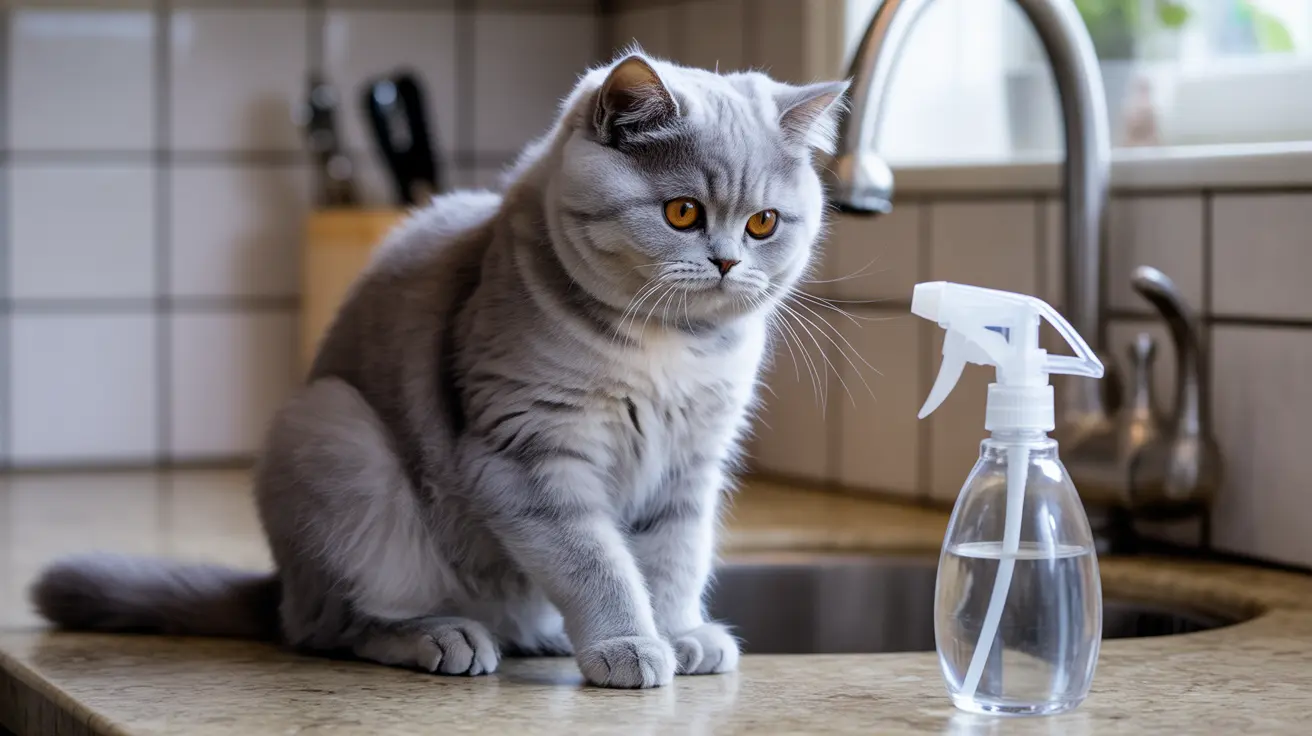The Impact of Spray Bottles on Cat Psychology
When a cat is sprayed with water, their immediate reaction is typically to flee or freeze. While this might seem like successful training, it's actually triggering their stress response and creating negative associations that can have lasting consequences.
- Increased anxiety and stress levels
- Fear-based behaviors
- Avoidance of certain areas or people
- Deteriorating trust in their human caregivers
Understanding Why Spray Bottles Don't Work
Despite their widespread use, spray bottles fail to address the root causes of unwanted behaviors. Cats don't make the connection between their actions and the spray – they only learn to fear the bottle or the person wielding it.
- Secretive behavior patterns
- Increased stress and anxiety
- Potential escalation of the original problem
- Damaged trust between cat and owner
The Long-Term Effects on Cat Behavior
Veterinary behaviorists have documented numerous negative outcomes from spray bottle use. Rather than solving behavioral issues, this punishment-based approach often creates new problems:
- Increased aggression
- Development of anxiety-related behaviors
- Inappropriate elimination outside the litter box
- Heightened stress in multi-cat households
- Deterioration of the human-animal bond
Humane Alternatives to Water Spray Discipline
Instead of reaching for the spray bottle, consider these effective, positive-reinforcement methods:
- Environmental enrichment through climbing spaces and scratch posts
- Consistent positive reinforcement with treats and praise
- Interactive play sessions to redirect energy
- Puzzle feeders and engaging toys
- Professional behavioral consultation when needed
Creating a Positive Training Environment
Successful cat training relies on understanding feline behavior and creating an environment that supports their natural instincts. This includes:
- Providing appropriate outlets for natural behaviors
- Understanding and addressing the root causes of unwanted actions
- Maintaining consistency in positive reinforcement
- Building trust through gentle, patient interaction
Frequently Asked Questions
Are spray bottles cruel to cats and can they cause emotional harm?
Yes, spray bottles are considered cruel to cats as they can cause significant emotional harm. They create fear, anxiety, and stress in cats, potentially leading to long-term behavioral issues and damaged trust between cats and their owners.
Why is spraying a cat with water ineffective for long-term behavior change?
Water spraying is ineffective because it doesn't teach cats what behavior is desired – it only teaches them to fear the spray bottle or their owner. Cats often continue the unwanted behavior when unobserved, making it an unsuccessful long-term solution.
What negative behaviors or stress can spraying cats with water cause?
Spraying cats with water can lead to increased anxiety, fear-based aggression, avoidance behaviors, inappropriate elimination, and deterioration of the human-animal bond. It may also cause cats to become more secretive with their unwanted behaviors.
What are better, humane alternatives to using a spray bottle for cat discipline?
Better alternatives include positive reinforcement training, environmental enrichment, interactive play sessions, appropriate scratching posts and climbing spaces, and puzzle feeders. These methods address the root causes of behavior while maintaining trust.
How does spraying with water affect the trust and bond between cats and their owners?
Water spraying can severely damage the trust between cats and their owners. Cats may begin to view their owners as unpredictable sources of punishment rather than safe caregivers, leading to a breakdown in the human-animal bond and making future training more difficult.
Remember, building a strong, trusting relationship with your cat requires patience, understanding, and positive reinforcement. By choosing humane training methods over spray bottles, you'll create a happier, healthier environment for both you and your feline companion.






